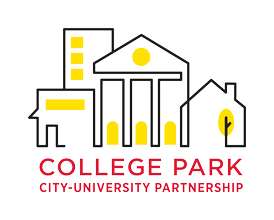Three Mechanisms of Systemic Inequity in Housing

Three Mechanisms of Systemic Inequities in Housing
Tawfiq Abdul-Karim
Housing has become a pressing concern for everyone, given raising interest rates and rent increases across the nation. Housing inequities have created significant barriers to homeownership for American residents, perpetuating ongoing challenges related to racial disparities, income segregation, and housing affordability. These challenges are especially acute for the most vulnerable populations. However, programs like the Community Preservation Trust are working to empower individuals and families to achieve their homeownership dreams in College Park, Maryland despite these formidable challenges.
Housing Inequity as a Policy Choice
Historic discrimination and segregation practices have led to measurable disparities in housing access, particularly affecting African American and Hispanic/Latinx communities. These challenges are generational in impact, with BIPOC (Black, Indigenous, and People of Color) individuals initially barred from property ownership until the Homestead Act of 1866, and further historical barriers like Jim Crow laws and redlining practices persisting into the 20th century.
Income Segregation
The uneven sorting of households or families among neighborhoods by income, otherwise known as income segregation, is another pressing concern. Lower and middle-income residents often find themselves concentrated in neighborhoods with limited resources and opportunities. This contributes to disparities in education, healthcare, and employment, perpetuating cycles of poverty, limiting economic stability, and diminishing overall quality of life for residents of these areas.
Economic Revitalization and Redevelopment
Revitalization, or sustained capital investment in a community is a double-edged sword, often bringing economic growth and significant urban development. While these developments bring usually much needed economic investment and infrastructure improvement particularly to areas historically disinvested, across the country, they also raise concerns about the displacement of long-time residents. The rapid increase in property values and rents poses affordability challenges for many residents, who risk of being priced out of their current neighborhoods, further contributing to housing insecurity. Since 2010, home prices in Prince George’s County (where College Park is located) have risen by 73%, while wages rose by only 42% in the same period.
The nation also faces a mounting housing affordability crisis. The mismatch between high housing prices relative to household incomes is an immense challenge for many residents, particularly those in lower-income brackets. As housing costs continue to rise, residents are forced to allocate a larger portion of their income towards housing expenses, often at the expense of other essential needs such as healthcare, education, and savings. This financial strain not only impacts individual households but also contributes to broader economic inequities and social disparities within communities. At their worst, these challenges can lead to overcrowding, substandard living conditions, and an increased risk of homelessness, especially among vulnerable populations.
How Do We Address Systemic Inequity?
With such ubiquitous, systemic issues – it is unrealistic to think solving housing inequity across the nation can be achieved by one organization alone. However, organizations can certainly do their part to help ease the burden. The Community Preservation Trust is stepping up and implementing innovative changes to support homeownership in College Park, Maryland, despite housing challenges.
Affordable Housing Land Trusts are one of several tools communities across the country have used to assuage discriminatory practices of the past. The Community Preservation Trust is designed to make long-term affordable homeownership achievable for income-qualified households in the City of College Park. The use of shared-equity concepts and a concerted effort to sell homes below market value not only make homeownership an option, but reduce the financial strain on households, allowing them to build equity and maintain housing stability without high costs.
As the College Park community continues to grow, organizations like the Trust are essential in creating a more equitable and accessible housing landscape. Despite challenges of the past, the Trust’s work contributes to long-term community stability and demonstrates that positive change is possible through collaborative and innovative approaches to housing access and affordability.
Sources
“The Color of Law: A Forgotten History of How Our Government Segregated America”, Richard Rothstein, 2017
“Why Does Segregation Between School Districts Matter for Educational Equity?” Urban institute Initiative
“State of The Nation’s Housing 2023,” Joint Center for Housing Studies at Harvard University
“Gentrification, Displacement and the Role of Public Investment,” Journal of Planning Literature
